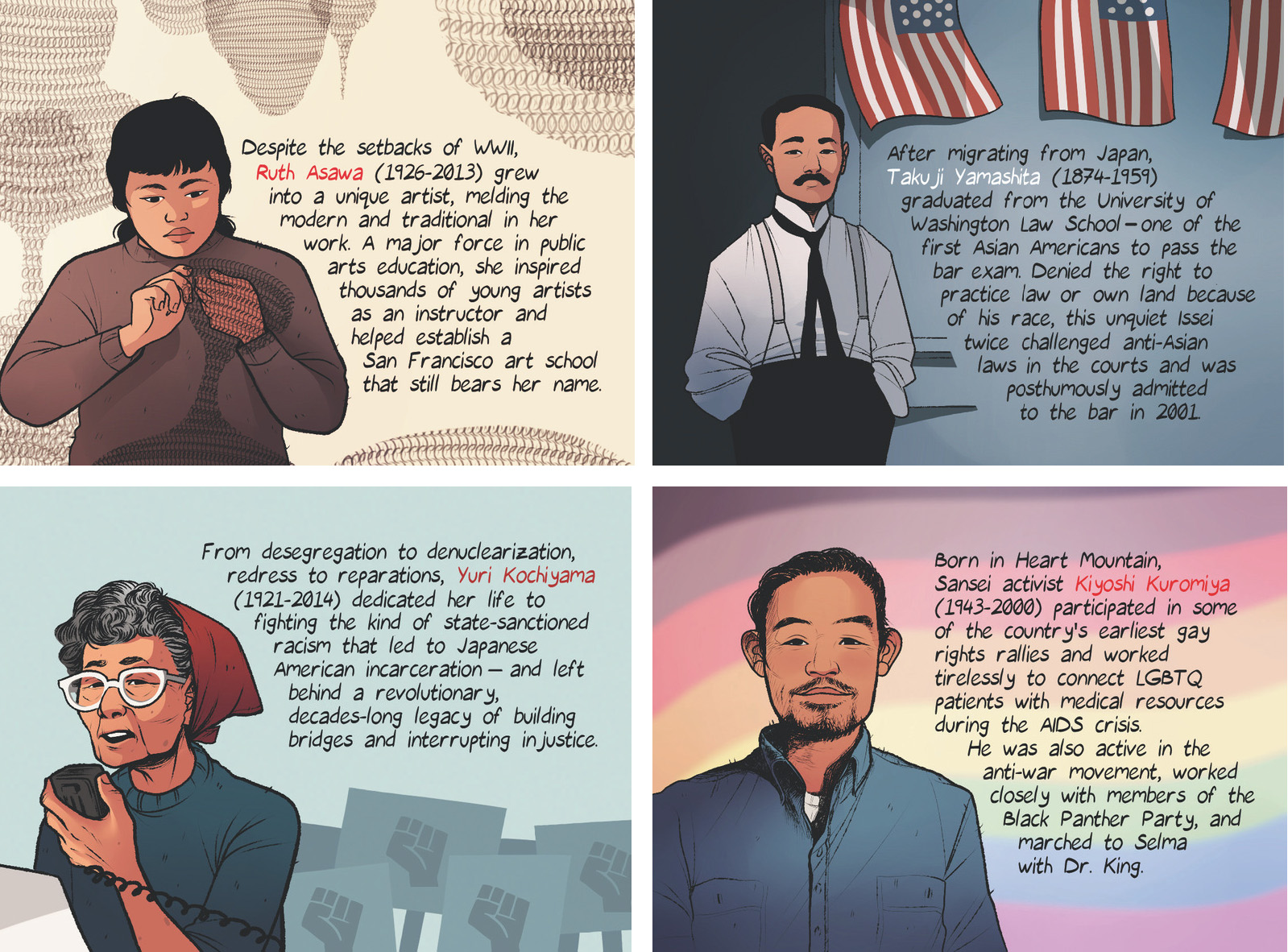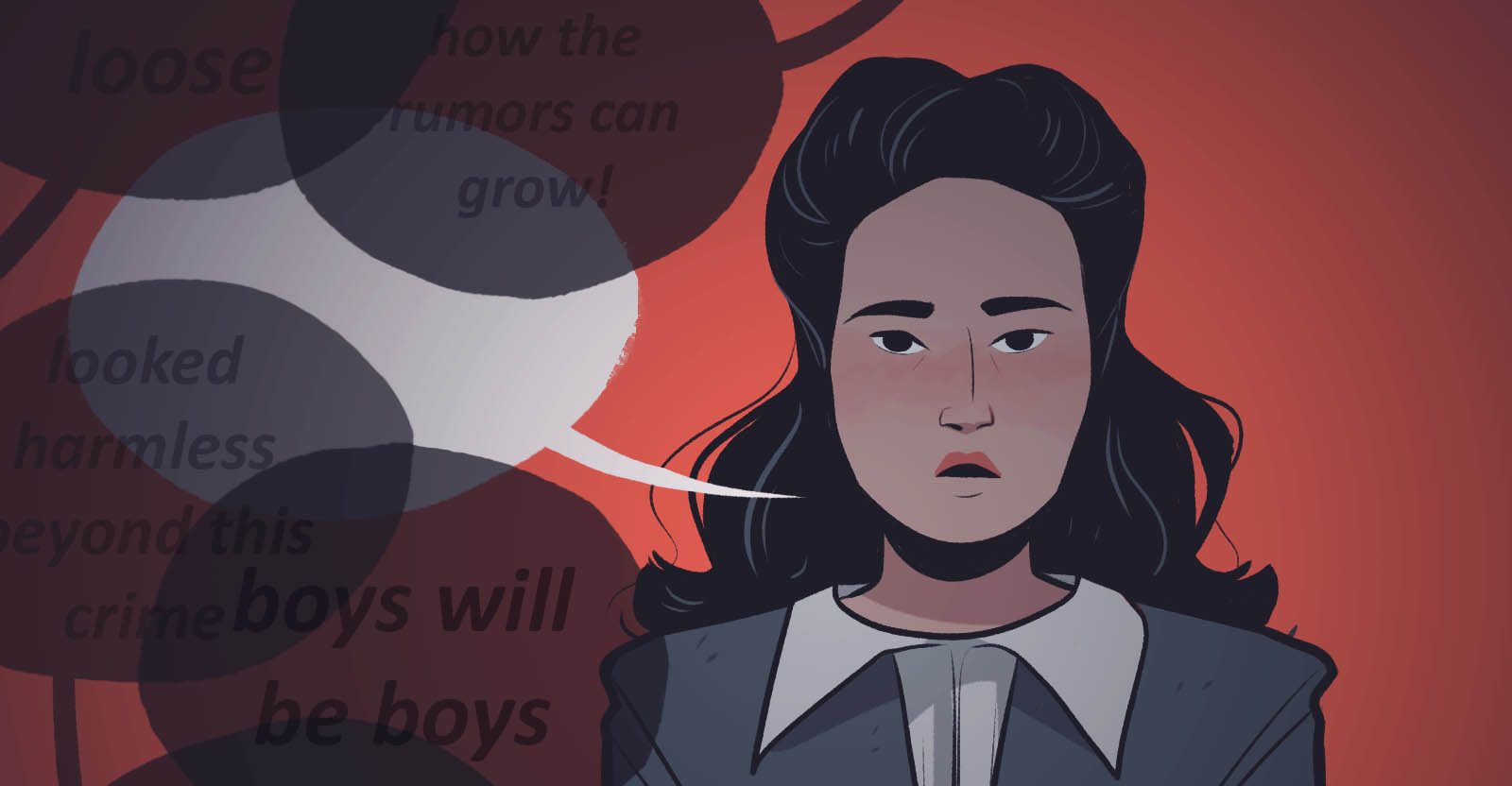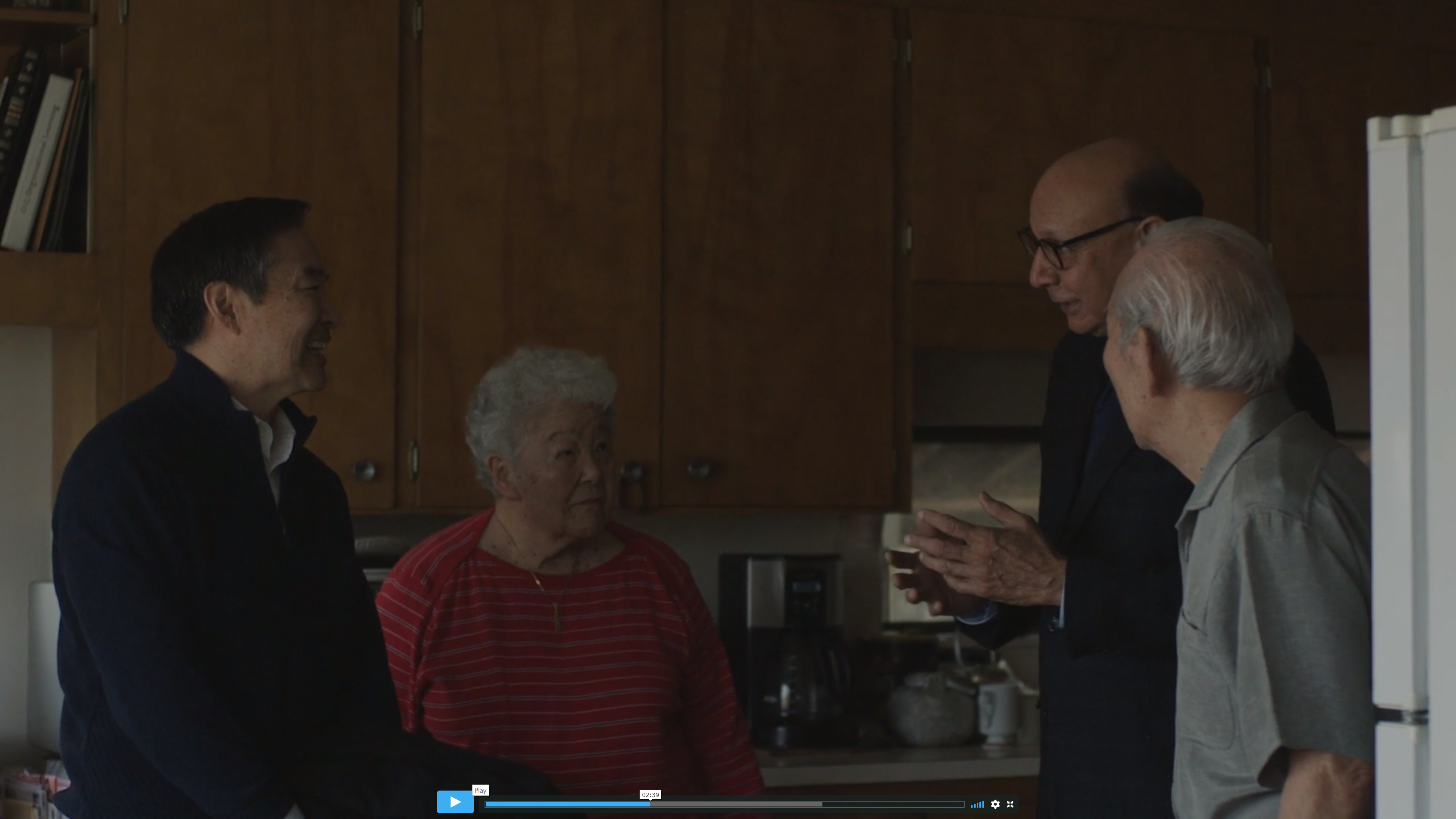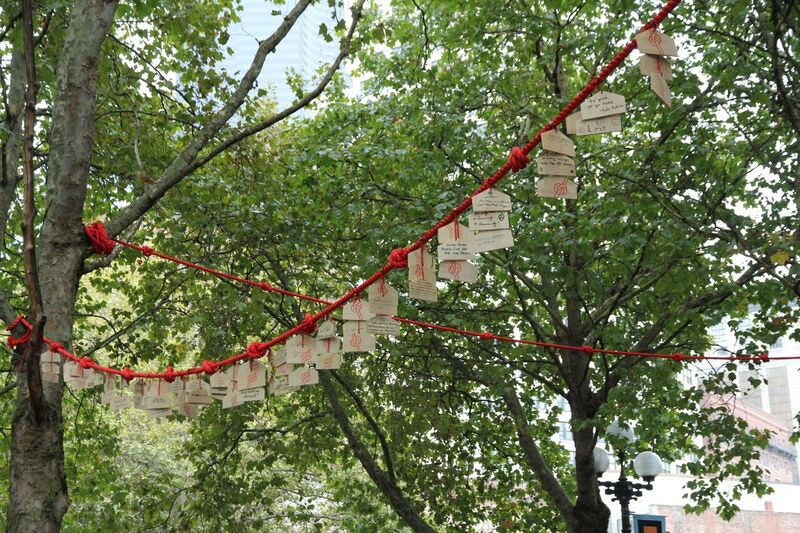November 8, 2018
Densho is first and foremost a history organization but as we have gotten more vocal about today’s political climate, we’ve become more acutely aware of the fact that art can help us get our messages out to a wider audience. That’s why we were thrilled to launch a new Artists-in-Residence program in 2018.
Take a look at some of the incredible work our artists have done, and what the residencies have meant to them in their own creative journeys.
Erin Shigaki
Erin Shigaki started off as Densho’s go-to designer, but this past year she’s explored large scale public art installations that have used our archives and messages in really creative ways.
According to Erin, the “Senninbari Shrine” (pictured in the blog header above) is a reflection on “how to create a place of protection: from both internal and external evils, past and present. Senninbari is a Japanese word meaning ‘one thousand person stitches.’ Incarcerated Japanese American women followed an old Shinto tradition of sewing red french knots onto garments to serve as protective amulets for their men departing in segregated units for WWII battlefields. The practice was that 1,000 knots were sewn on each garment by 1,000 different women. The red knotted ropes in my piece refer to this loving, communal practice — and make it fiercely bold. These garlands are adorned with handwritten ema (plaques) on which hundreds of Seattle community members wrote positive wishes or hopes for the future.”
Erin also installed a large wheat paste mural on the side of Densho’s building that faces a busy Seattle intersection. The mural features a Dorothea Lange photo of two unnamed children the day they entered the Turlock detention facility. The fear and worry on their faces is almost palpable; combining it with the “Never Again is Now” message sends a powerful reminder that we all have urgent work to do.
As all paper murals will, the wheatpaste is now falling down, but you can forever see it in the timelapse mural we made of the installation. Erin also designed a tote bag version of the installation and it’s available through a donation to Densho — learn more here.
Erin’s work has provoked a lot of necessary conversations, and the residency has had a major impact for her as well. She writes, “I am deeply grateful to Densho for the support and freedom to try new mediums and express my passion for our community. I feel especially drawn to make work about the Japanese American incarceration and how it affected my family and community. My goal is to tell some of the 120,000 stories of injustice, as well as to reveal moments of resilience and beauty. What happened then rhymes so clearly with what is happening today and I cannot be silent.”
Kiku Hughes


Kiku Hughes is an incredible comics artist. Her two great passions are science fiction and social justice, and her life’s mission is to incorporate both into every story she tells. We were lucky enough to have her illustrate engaging images that were shared widely across social media platforms.
“Densho is an invaluable resource and a powerful voice. Many details of Japanese American incarceration has been quieted, dismissed and hidden, but I’ve learned so much and feel so much more connected to my community and my own family thanks to the Densho archives. Most importantly, Densho is finding new ways to share these important stories to make sure nobody forgets what fear-mongering and racist fervor can lead to. I was honored to help Densho share these stories with illustrations to make them even more accessible.”
Kiku is currently working on her first graphic novel, about Japanese American incarceration. Displacement, a story about actively reliving and reviving the past, will be published in 2019, so stay tuned!
Tani Ikeda

Tani Ikeda is a talented artist and filmmaker who brilliantly infuses her activism into her work. She’s also the creator of the powerful #SurvivorLoveLetter movement, and a co-founder of the Nikkei feminist art network Japanese American Women Speak (JAWS). For her artist residency she made a short film about her father, Tom Ikeda, and her grandparents meeting Khizr Khan, the Gold Star father who achieved public celebrity after denouncing Trump at the 2016 Democratic National Convention. Tani’s film is still a work in progress, but she allowed us to share a (very well polished) rough cut at the 2018 Densho Dinner. We look forward to seeing the finished product!
Paul Kikuchi
Paul Kikuchi is a musician, activist, and educator whose work is informed by highly diverse influences – from his roots as a rock drummer to his experience as a Feldenkrais practitioner – as well as his research into Japanese-American history in the Pacific Northwest. His interdisciplinary work seeks to generate reflection and dialogue, especially in the context of history, community, and identity, and to give voice to marginalized communities and peoples.
Paul Kikuchi has several works in progress that combined sound and moving image in provocative ways. Paul also helped forge a partnership between Densho and the JCCCW to digitize a collection of 78s that will soon appear in the Densho Digital Repository.
—
The Seattle Office of Arts & Culture generously provided support for this artists-in-residence program. Thank you, Seattle Office of Arts & Culture, for always challenging us to meet our goals in creative and engaging ways! Funding for Erin’s Sennibari Shrine also came from the Downtown Seattle Association.
[Header photo: Senninbari Shrine” by Erin Shigaki; photo by Eugene Tagawa.]
